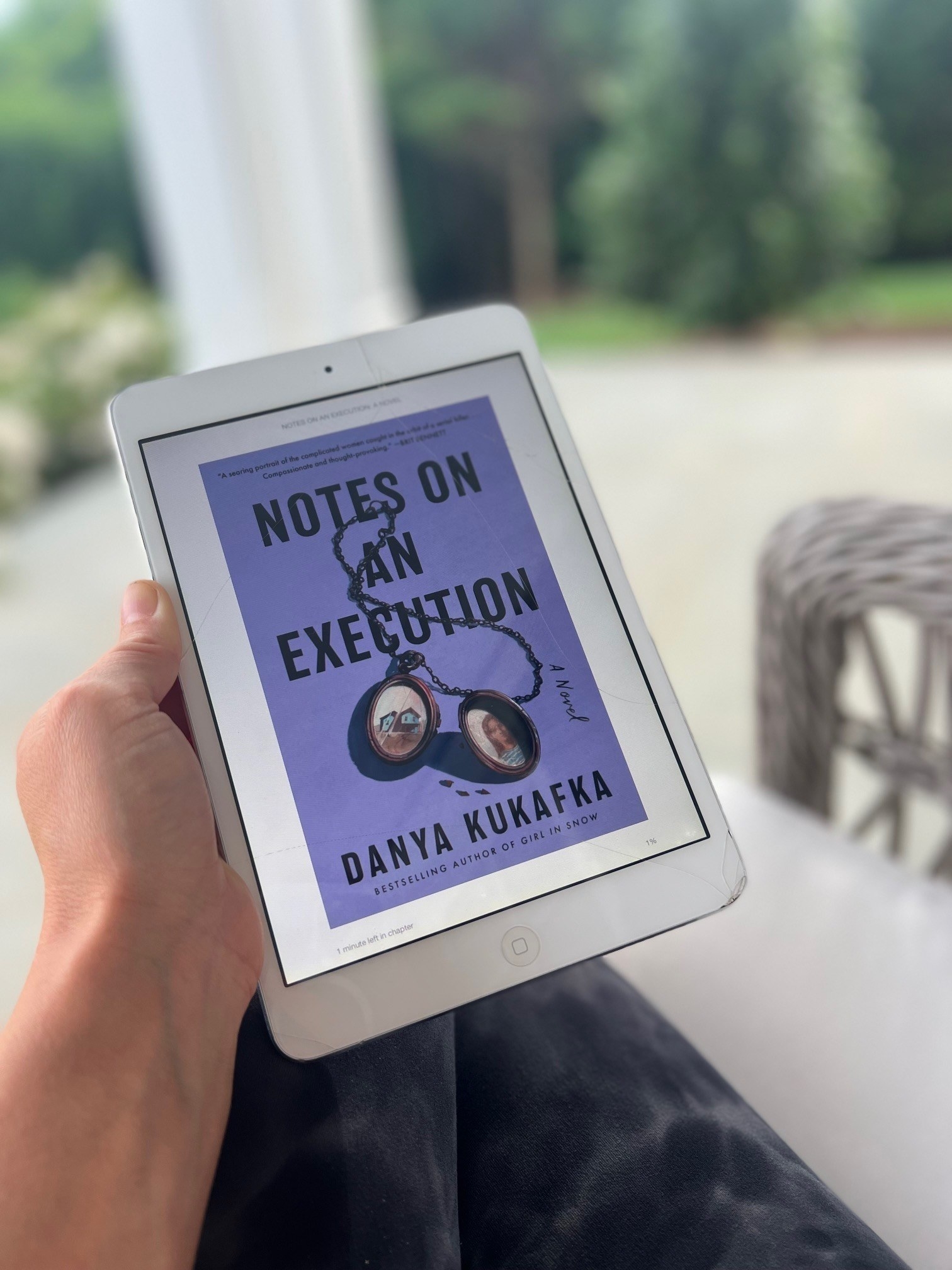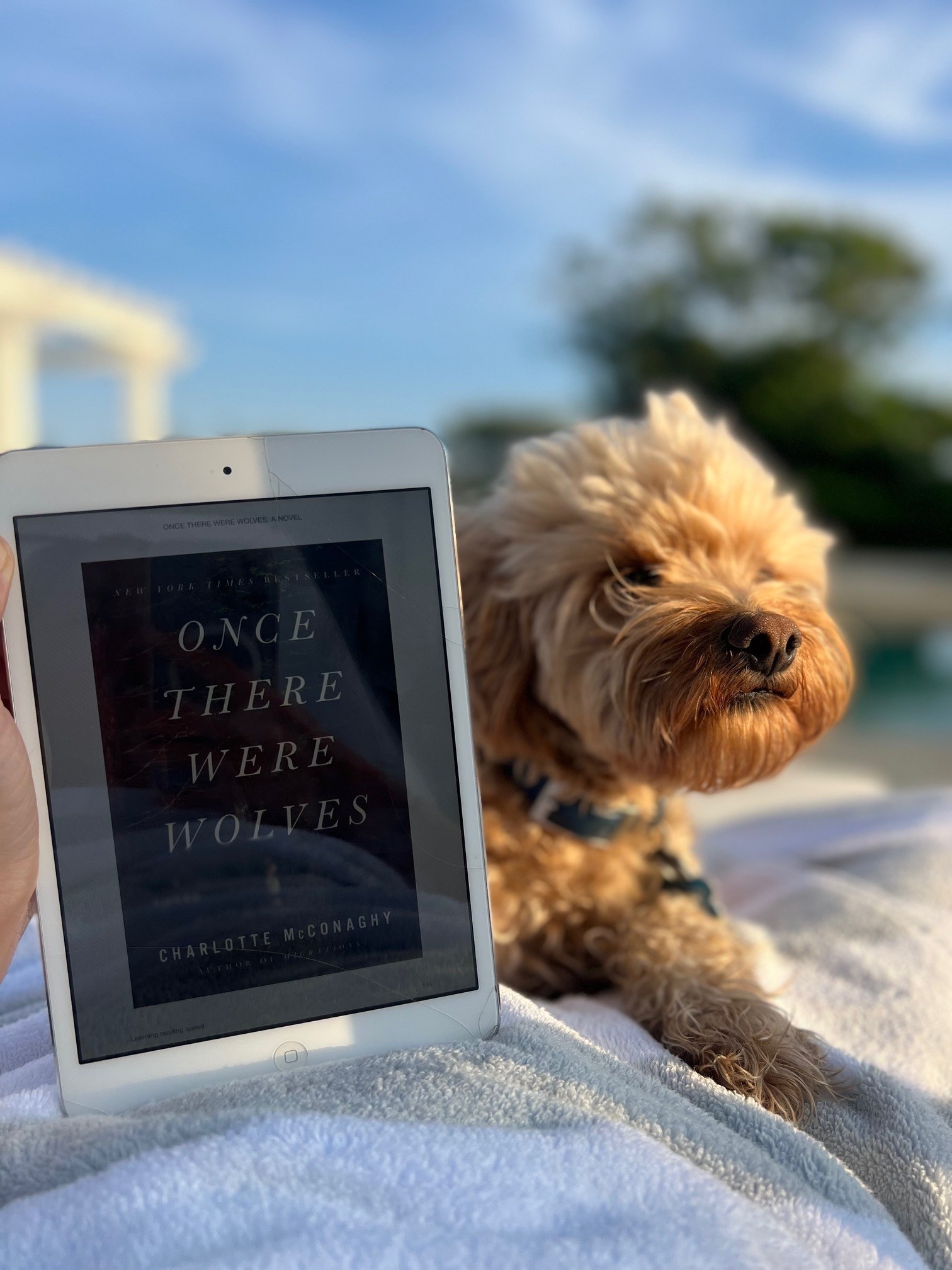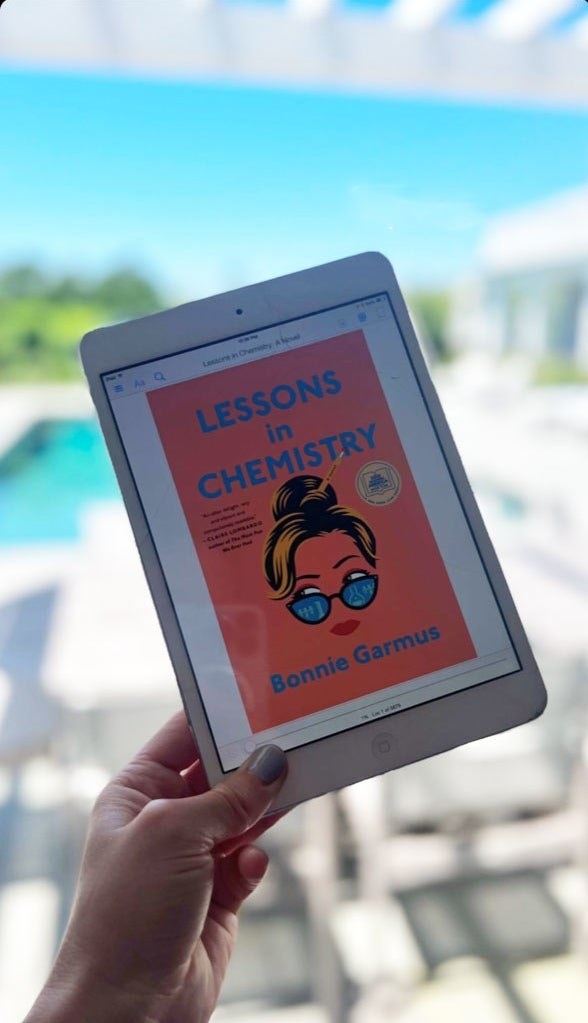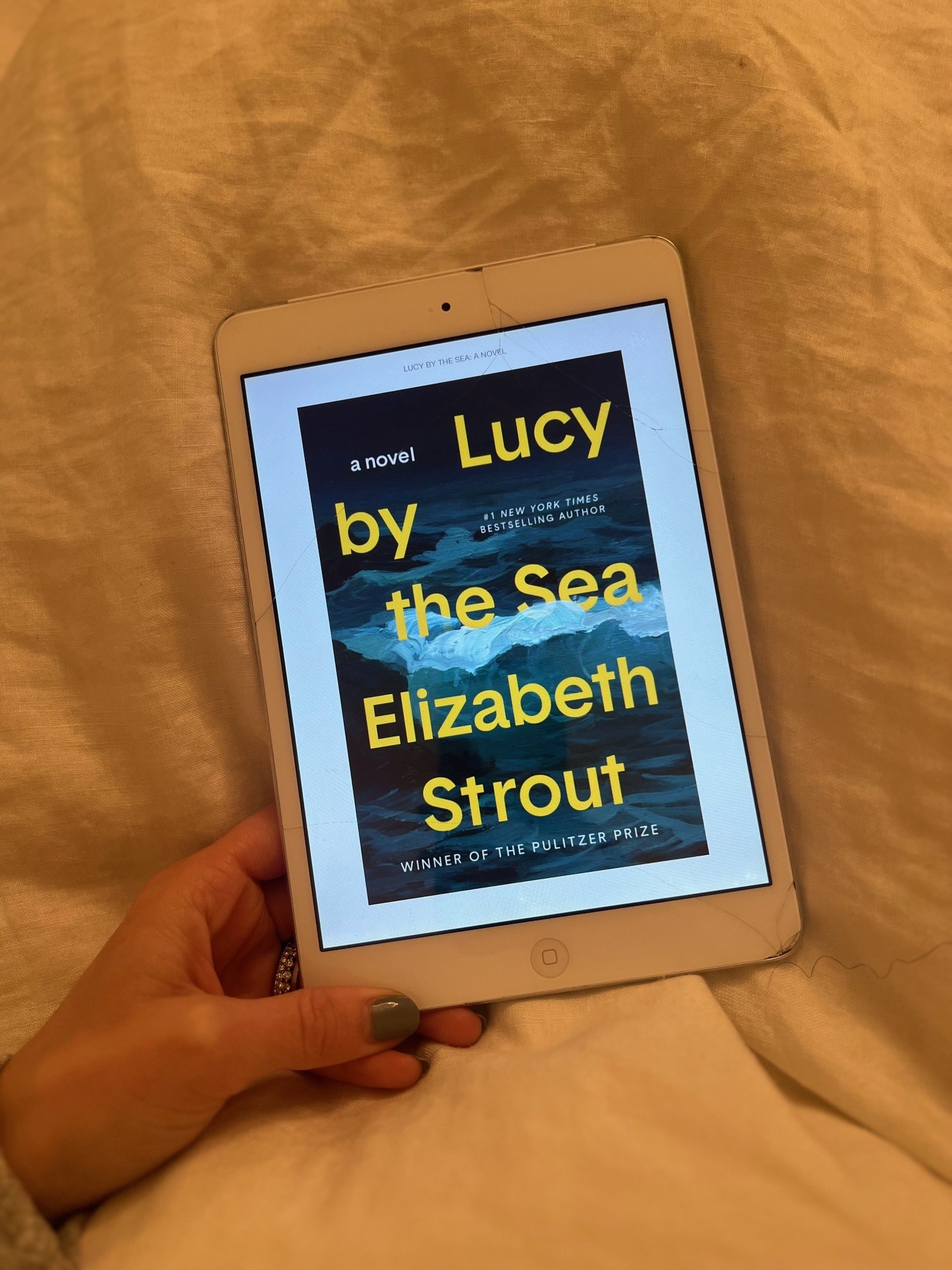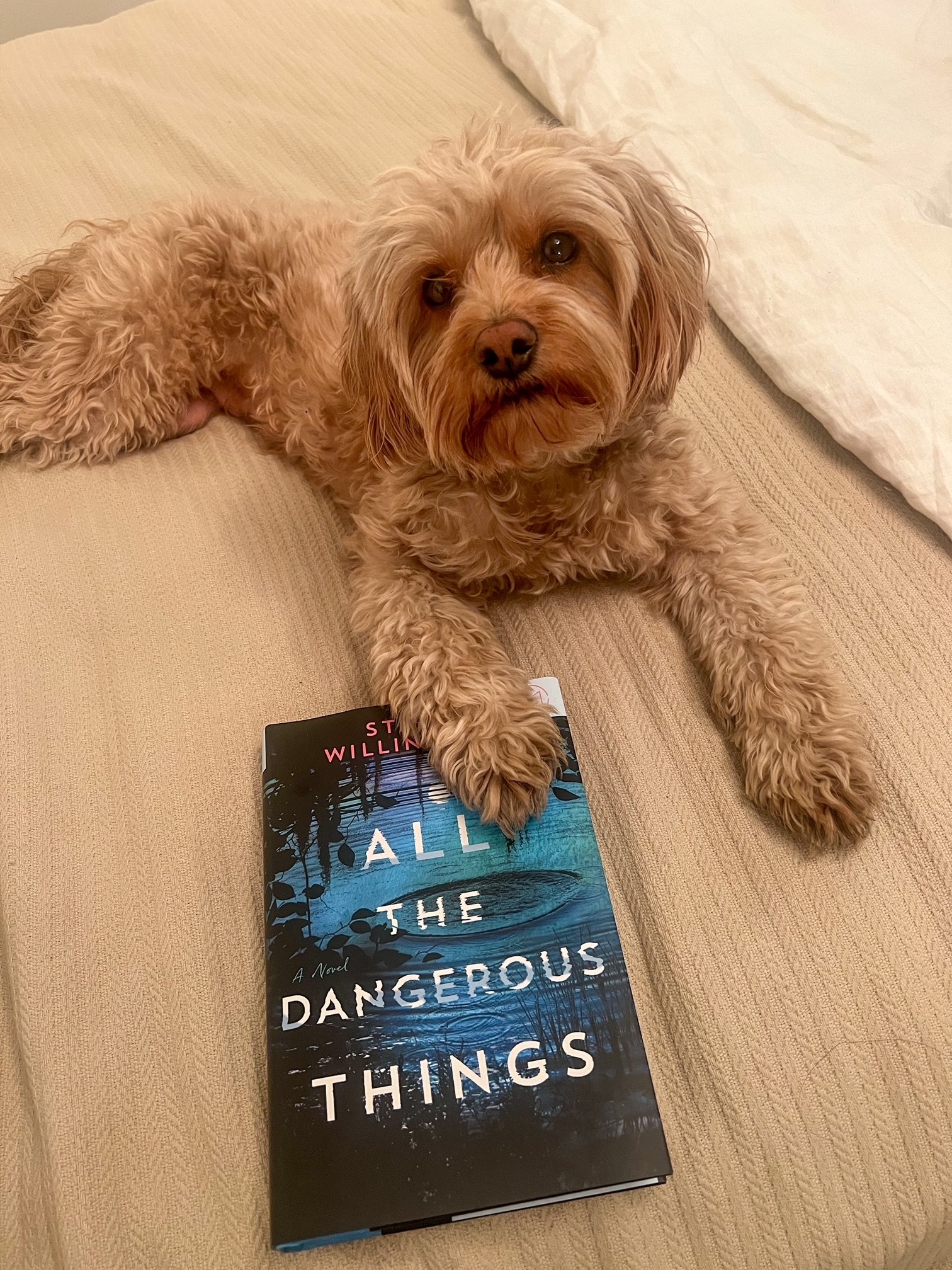WHY I LOVED IT: Yes, this novel is in a sense about video games. Two unlikely childhood friends — Sam and Sadie — who bonded over a love of gaming reconnect in college and end up creating a hit video game together. But that’s only the very beginning. It’s a story about friendship, love, loss, identity, belonging, and so much more. I can confidently say you don’t need to appreciate or even like video games to love this book because while it’s partly about gaming, it’s mostly about life and the relationships that make life worth living. WHY I LOVED IT: There’s no sugarcoating the fact that this is a devastating memoir: Bloom’s husband, Brian, diagnosed with Alzheimer’s disease, decides he wants to travel to Switzerland for Dignitas, an organization that assists in suicide. But despite the heartbreaking premise, Bloom’s memoir is laced with moments of humor, lightheartedness, wit, and such honesty. The entire memoir is also a powerful statement on how we view the right to die in the United States, which gives you lots to think about. In Love left a very deep impression on me. WHY I LOVED IT: The whole book takes place in the 12 hours before the execution of Ansel Packer, a man accused of multiple female murders. The chapters are made up of the hours leading up to his execution interspersed with others about the women in Ansel’s life — his mother, his wife, and her twin sister, and a female detective tasked with solving this whole case. What I loved most about this book though is that it isn’t violent or gory as most “serial killer” stories are. Rather, it’s a striking psychological deep dive into the mind of a killer that brings up interesting questions about us as a society. I haven’t been able to stop thinking about this one since I finished reading it. If you’re a fan of Criminal Minds or Mindhunter or the like, don’t miss this novel. WHY I LOVED IT: The novel is, at its core, about Bix Bouton, who dreams up Own Your Unconscious—a technology that allows people to access a lifetime of memories and share them in exchange for the memories of others. But the story is told in fragments in the form of interconnected narratives and characters who are affected by the technology. I loved Egan’s method of storytelling, which came together little by little and in no obvious fashion. Each chapter of The Candy House illuminates a character from a previous chapter but from a new point of view, so by the end of the novel we see the characters from several different lenses and how they are intertwined. If that sounds a bit trippy, it’s because it is…and that’s all part of the fun. WHY I LOVED IT: City of Girls is told from the perspective of an old woman named Vivian who is looking back and telling the story of her youth to some unknown listener. The story begins when 19-year-old Vivian is kicked out of Vassar College and moves to New York City to live with her aunt Peg at the Lily Playhouse. I loved how City Of Girls manages to be both fun and serious: Vivian is young and reckless as she explores her whole new world, a larger-than-life New York City in the 1940s, but the book takes on a more serious tone as it progresses, as Vivian must face mistakes, shame, scandal, war, and loss. I especially adored the strong female protagonists and the way in which this bygone era in New York City comes to life once again through Gilbert’s pages. WHY I LOVED IT: Once There Were Wolves is about two twin sisters who move to the Scottish Highlands, one of whom is in charge of a group tasked with rewilding grey wolves. If that doesn’t appeal to you, read the book anyway. It’s ripe with memorable characters, scandal, suspense, surprises, and even a murder mystery. This novel was haunting, beautiful (yes, I was in tears for the last 50 pages), and a serious page-turner. WHY I LOVED IT: This is a perfect summer read, one that you can devour in a day or two, but at the same time, there’s substance to it. The writing is laugh-out-loud funny and clever, and the story is adorable. It’s about a single mother (a remarkably bright, determined, and super quirky female chemist) who is unwilling to give in to the gender norms of her time. It reminded me a lot of The Marvelous Mrs. Maisel, and it was highly entertaining from start to finish. Read this one if you’re looking for something light and compelling but still interesting. WHY I LOVED IT: This memoir is both incredibly heartbreaking and wildly inspiring. I felt so moved by this story, by the author’s attitude toward life, her brutally honest account of illness and the road to recovery, and her ability to embrace the unknown. Of course, some of this book is about illness, but it’s mostly about life. Even if you don’t think you’re a non-fiction person, I encourage you to read this book because it will change your mind. Why I loved it: Though technically a novel, this book reads a whole lot like non-fiction (in fact, parts of it really reminded me of a Joan Didion memoir). When I picked this book up, I wondered if I really wanted to read something about the pandemic, an event that still feels so recent and exhausting. But as I read, I found myself loving the story. Strout really captures so many of the feelings that I (and so many Americans) experienced during the pandemic: panic, anger, isolation, insecurity, skepticism, and lots of confusion. But at the same time, I loved the characters in this book — they are imperfect and messy and so very human — as well as Strout’s unique writing style, which feels both profound yet casual at the same time, as if she’s talking to a close friend. Why I loved it: If you’ve made it this far into my list of favorite books, you have probably noticed that I really enjoy a dark and twisted read. This one is no exception. It’s an ambitious saga that spans generations and continents, and it’s heavy: Parts are incredibly sad — depressing even — and parts of straight-up wacky (for example, a chapter about a pig that develops the ability for human speech). Oh, and the pandemic in this novel, an ancient virus that emerges from melting permafrost in the Arctic Circle, makes COVID feel tame. But if you look beyond the plot, I also found Nagamatsu’s writing itself to be exceptionally beautiful. Why I loved it: All The Dangerous Things has all the makings for a great thriller: First, there’s an unreliable narrator who suffers from sleep issues and blackouts, there’s a parallel plot of Isabelle’s past that unfolds alongside the present mystery, and there are several mysterious characters with unclear histories and intentions. This was a binge-able read that was difficult to put down until the end, and it was a rarity that kept me guessing until the final chapters. Why I loved it: I wish this book had been required reading in school because there is so much to unpack and so many things I have been thinking about since I finished the last page. One fascinating thing about this novel (and something that makes it different from most books I’ve ever read) is that each of the six main characters is terrible. Not one is likable, including the narrator, Richard, and Bunny, who is proclaimed dead on the first page. Rather than feel sympathetic to any of these characters, you are totally repulsed by them. And that’s part of the allure of this book. It’s all about wickedness and treachery and deceit, and it’s completely brilliant and spellbinding. The Secret History is over 500 pages long, but I can honestly say I was never ready for it to end. Why I loved it: The plot of this novel should be enough to convince you to read it, but the characters are really exceptional. Krueger brings each of them to life through his writing to such as extent that it’s hard not to fall in love with them: I felt their pain, celebrated their victories, and found myself really, truly rooting for them to succeed. At the heart of this novel is the whole notion of storytelling. There are plenty of moments when you’ll wonder what is truth and what is make-believe. The children tell and listen to stories to survive, and they encounter situations that seem somewhat fantastical. But just maybe the whole point is that the line between truth and fantasy, reality and fable doesn’t really matter all that much. Why I loved it: Like in City of Girls, New York City is very much a character in this story. It’s a period piece at its finest, and Towles does an amazing job of transporting the reader into the glitz, glamor, noise, and debauchery of 1930s NYC. It made me want to travel back in time to experience this moment of the city for myself (and it also made me want to drink several martinis). Aspects of this novel reminded me a lot of The Great Gatsby with its depictions of class and wealth, its portrayal of scandal, and its exploration of complicated relationships.
